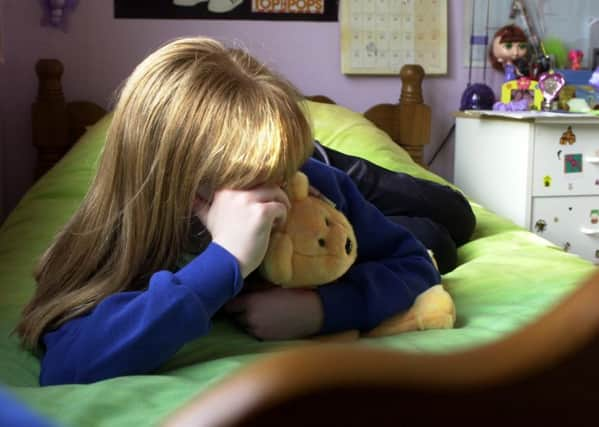Myles Fitt: Time we all knew the signs of Coeliac disease


Many years ago, coeliac disease was regarded as a condition that only affected children. In the 1920s and before the cause was fully understood – an auto-immune reaction to food containing the protein gluten in wheat, barley and rye products – children were fed a diet of bananas. While this helped by excluding gluten-containing foods such as breads and cereals, bananas were not the solution. We also now know coeliac disease can affect people of any age and at any time in their life.
But as any parent who has watched their child struggle with the ill-health associated with undiagnosed coeliac disease will testify, it is an extremely worrying time.
Advertisement
Hide AdAdvertisement
Hide AdMy own daughter was diagnosed at 17 months. For the five months prior, she suffered from bouts of vomiting, a lack of energy and a pronounced lack of weight gain. All were symptoms of coeliac disease, a condition neither I nor her mother knew anything about. The clinicians who saw her did not consider coeliac disease and instead offered reassuring explanations which seemed to make sense. The symptoms refused to budge, our worries returned and eventually a diagnosis was made.
Childhood coeliac disease deserves our attention. Coeliac UK provides invaluable support to parents of newly diagnosed children with information on the transition to a gluten-free diet but also a helpline to answer health-related and dietary queries along with a peer support service for parents to learn from others experiences.
We also fund research into coeliac disease, including in children. A study we recently funded estimated that diagnoses among children older than two years has almost tripled 20 years. Over recent years, some other studies across the UK have also found a similar increase in childhood coeliac disease.
One of those studies in 2013, from researchers in Edinburgh and part-funded by Coeliac UK, looked at three categories of children with coeliac disease in the south-east Scotland between 1990 and 2009. Firstly, those who had “classical” symptoms which develop before school age and are typically gastrointestinal such as diarrhoea and abdominal pain but alongside additional symptoms such as fatigue and anaemia. Secondly, those with non-classical symptoms where only one isolated symptom was at play. Thirdly, those who were actively tested because they were at risk due to a family history of coeliac disease or from having a related health condition such as diabetes.
Overall and across each category there was a significant increase in the rate of diagnosis and this was considered to be due to heightened clinical awareness, a lower threshold for testing and more targeted testing of “at risk” groups.
What had the researchers intrigued was the rise in the numbers of children with “classical” symptoms, where clinical awareness and testing played no part. There was a four-fold increase over the 20 years in this category allowing the researchers to conclude this indicated a true rise in the incidence of childhood coeliac disease. In other words, the increase couldn’t just be put down to improved clinical awareness and intervention, it was strongly suggesting more children were actually developing coeliac disease.
In addition to an increase in overall childhood coeliac disease, socio-economic status has also been found to play a role in diagnosis rates. Earlier this year, a study by the University of Nottingham joint-funded by Coeliac UK, showed that children from the most socio-economically deprived areas are only half as likely to be diagnosed with coeliac disease as those from the least-deprived areas.
This finding was consistent across all four nations of the UK.
Advertisement
Hide AdAdvertisement
Hide AdWe are beginning to get a clearer picture from these studies of the scale of coeliac disease in children yet we know many children remain untreated and undiagnosed. Coeliac UK is currently running a major campaign to increase awareness of the signs and symptoms of coeliac disease amongst the public and the medical profession.
If you think your child may have coeliac disease please visit our campaign website and complete the on-line assessment which helps determine whether your child needs to be tested for coeliac disease. On completion, you will receive a result which you can print out and take to your GP if the assessment highlights the need for further investigation.
• Myles Fitt, Scotland Lead, Coeliac UK